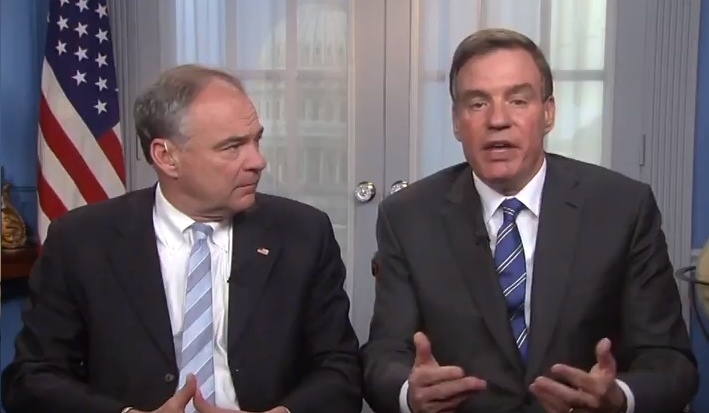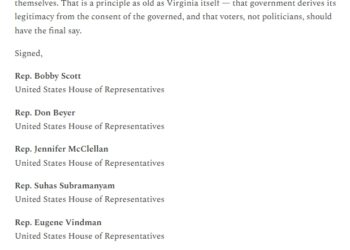Media Contact:
Jarrod A. Nagurka
jarrod.a.nagurka@gmail.com
703.473.5097
Today, Delegate Patrick Hope, running for congress in Virginia’s 8th Congressional District, announced support for Senator Ron Wyden’s (D-OR) efforts to resurrect a proposal that creates savings accounts for newborns. Similar to the 2009 ‘American Saving for Personal Investment, Retirement, and Education Act,’ Wyden’s legislation would create a $500 savings account for every child born in the United States. These accounts would grow tax-free, and families could place up to $2,000 per year in the account. For certain families below the poverty level, the federal government will also match up to $500 in annual deposits.
The funds in the account could be used towards a college education, down payment on a home, or a retirement fund. “This is an opportunity to encourage smart savings and will result in investments in education and home ownership,” Hope said. “While the proposal does include up-front costs, we know that these types of investments can ultimately curb poverty rates. The federal government must investigate and pursue every opportunity to spur economic growth, increase education rates, and reduce the number of welfare dependents, as this proposal has the potential to accomplish.”
Patrick Hope was first elected to the General Assembly in 2009, and now chairs the Virginia Progressive Caucus.
###
Additional Background Information Gathered About the Proposal
The Lifetime Savings Account
Senator Ron Wyden (Oregon – D) will push to establish universal savings accounts for all newborns in the U.S. as a way to “really put a dent in the poverty rate.” The potential legislation modeled after the American Saving for Personal Investment, Retirement, and Education Act (ASPIRE) of 2009, would provide all newborns in the United States with a $500 savings account at birth. After an account has been created for a newborn, the Secretary of the Treasury will transfer $500 into each individual account. This amount will be indexed for inflation Contributions to the account would grow tax free, and annual contributions made by the child, his family, or any private source would be matched dollar for dollar, up to $500 a year, for families up to median income. Up to $2,000 annually can be deposited into the account.
Children born into households making less than the national median income will be eligible for an additional contribution of up to $500 – those that live at 75% of the median income will receive the full $500 bonus, and the bonus phases out evenly until it hits $0 for people who are at the median income or above. Children in households that make below 75% of median income can receive a dollar-to-dollar annual match of the first $500 of annual contributions until they turn 18 years old.
Permissible Uses of the Lifetime Savings Account
The money in the account could be used to defray the cost of college, for the purchase of a home, or to retire. An account holder would not be able to access the funds until their 18th birthday. Before an individual turns 18, a parent or legal guardian will make investment decisions; after the account holder turns 18, their account will be governed by rules similar to Roth Individual Retirement Accounts (Roth IRAs). These rules allow for tax-free withdrawals without penalty for select pre-retirement uses including post-secondary education and first-time home purchase. When the accountholder is between 18 and 25, account withdrawals can only be used to defray the cost of college. After the individual turns 25, withdrawals can be used to purchase a home or to supplement other retirement savings. Investment options for ASPIRE accounts will be similar to those for Thrift Savings Plans, such as a government securities fund, fixed income investment fund, and common stock funds. At any time after the account is opened, the family may transfer the account to a private sector financial institution.
The proposal allows parents, family members and other private sources to contribute to our children’s future. A corporation, for example, could offer to contribute a certain percentage of an employee’s salary to his child’s ASPIRE account as a benefit. So instead of contributing to Roth IRA for themselves, a parent may be able to contribute to their Child’s ASPIRE account.

![[UPDATED with Official Announcement] Audio: VA Del. Dan Helmer Says He’s Running for Congress in the Newly Drawn VA07, Has “the endorsement of 40 [House of Delegates] colleagues”](https://bluevirginia.us/wp-content/uploads/2026/02/helmermontage.jpg)
















